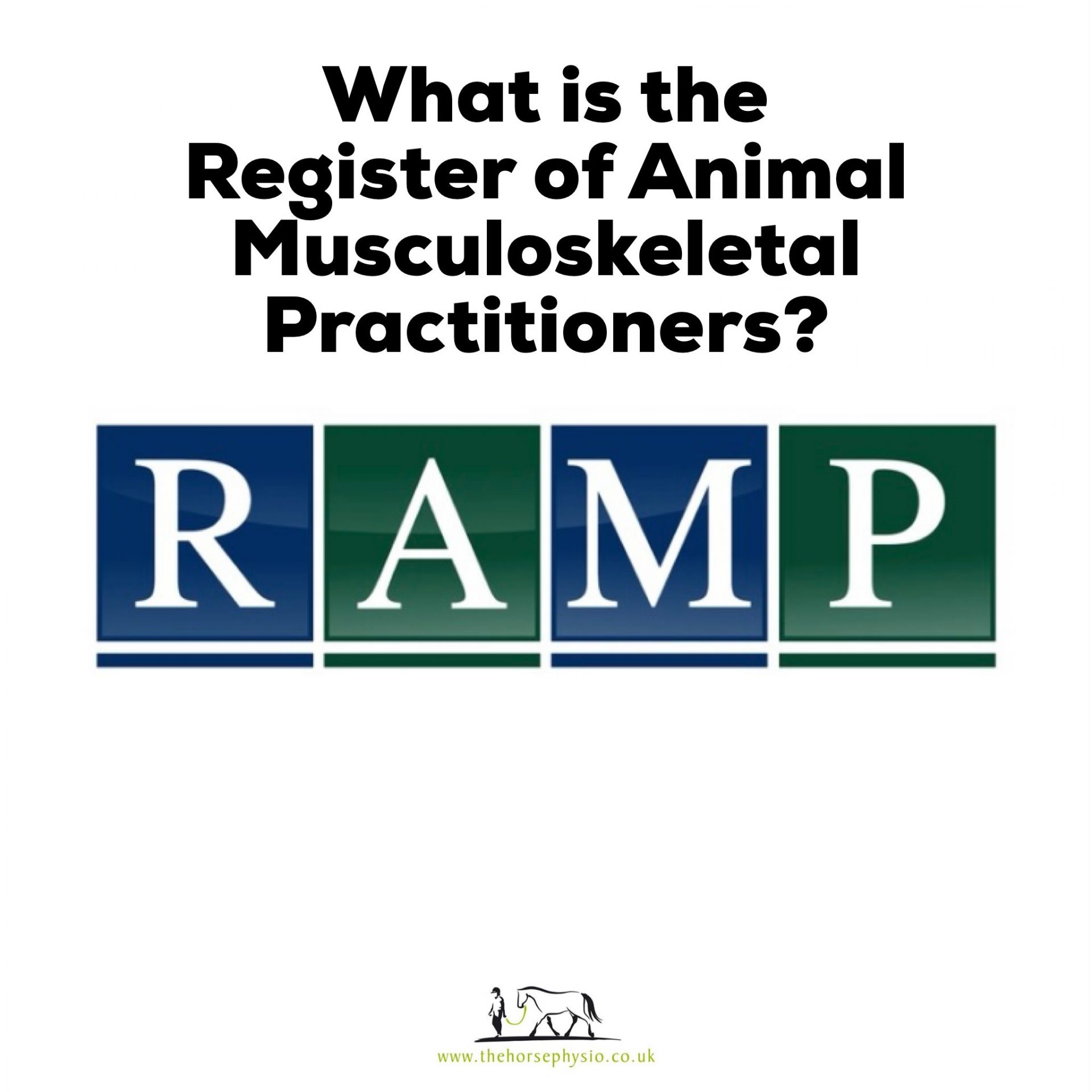Chiropractic, Osteopathy and Physiotherapy approaches to animal care are very popular with animal owners. The RAMP Register only accepts people who meet the RAMP Standards.
These include educational qualifications including knowledge base, skills & proficiency, proof of Professional Indemnity Insurance, proof of Public Liability Insurance – to make sure you are covered in case of accident, signed and audited undertaking for the minimum level of Continuing Professional Development, and signed acceptance of the Standards for Practice to the equivalent level of practitioners in the human field
I have been a member of the RAMP since it first started. I’m a really strong supporter, and I believe that it is the way forward for animal musculoskeletal therapy. There has been so much confusion over the last few years. Courses have sprung up left, right, and centre qualifying students as musculoskeletal practitioners of some form or another. That might be a massage, osteopathic techniques, chiropractic techniques, physiotherapy, and much more.
The title Veterinary Physiotherapist is not a protected title. Anyone can use it. The titles Physiotherapist, and Physical Therapist, are protected by the Health Care and Professions Council, www.hcpc-uk.org. The HCPC state on their website that the titles are not protected if an animal related word is placed in front of. The same applies to all professionals that are regulated by the HCPC, which includes dentists.
This is not likely to change. In my opinion, members of the RAMP have achieved the gold standard of qualification in the animal musculoskeletal field. That doesn’t necessarily make some great practitioners. Qualifications are not everything. But they’re a good starting point.
© Sue Palmer, The Horse Physio 2021
Treating your horse with care, connection, curiosity and compassion
@RAMPreg on FB
www.rampregister.org
